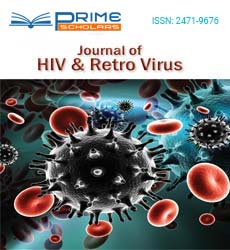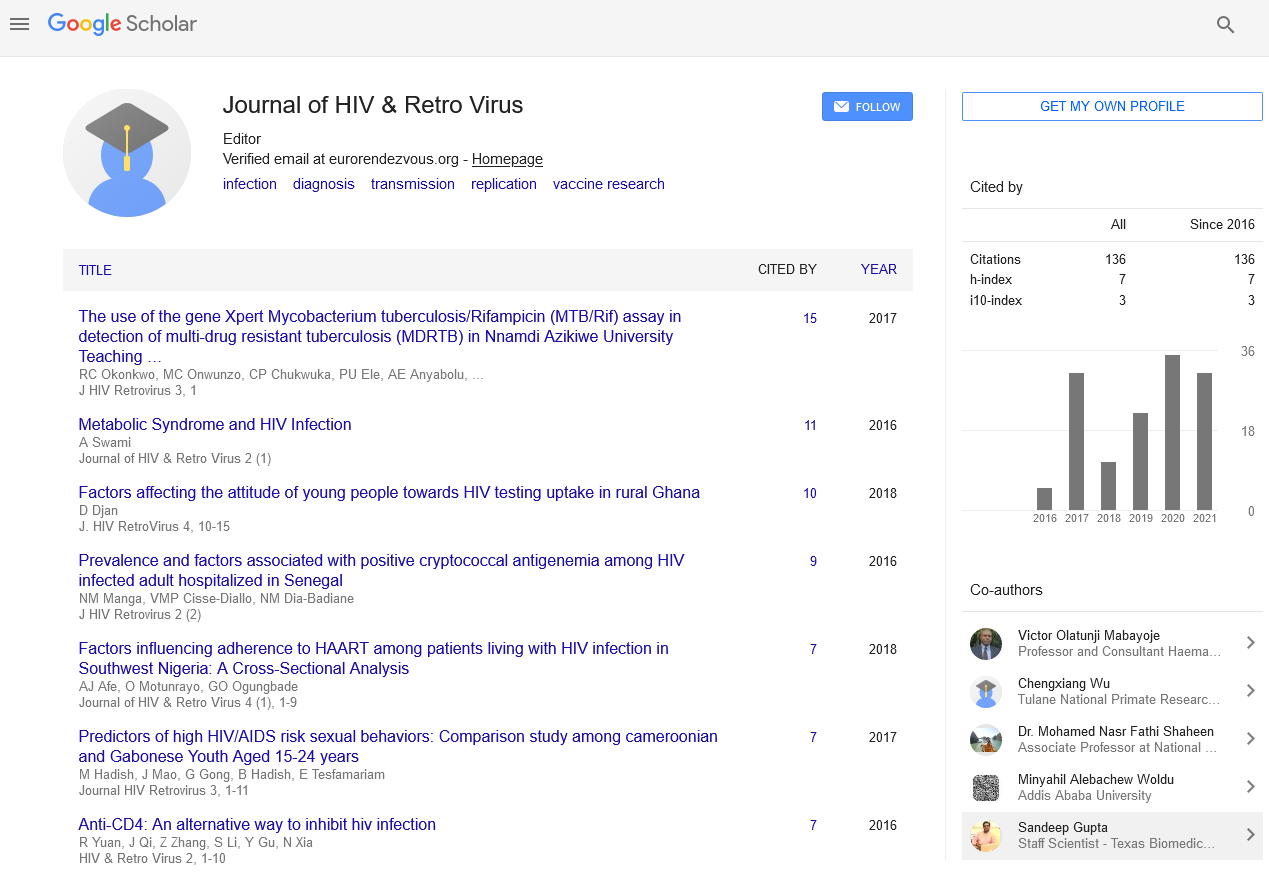Commentary Article - (2023) Volume 9, Issue 2
: The Battle Against Infectious Diseases: Challenges and Progress
John Mellors*
Department of Epigenetics, University of Texas, United States
*Correspondence:
John Mellors,
Department of Epigenetics, University of Texas,
United States,
Email:
Received: 29-May-2023, Manuscript No. IPJHRV-23-17486;
Editor assigned: 31-May-2023, Pre QC No. IPJHRV-23-17486;
Reviewed: 14-Jun-2023, QC No. IPJHRV-23-17486;
Revised: 19-Jun-2023, Manuscript No. IPJHRV-23-17486;
Published:
26-Jun-2023, DOI: 10.21767/2471-9676-9.2.18
Introduction
Infectious diseases have been a persistent challenge to humanity throughout history, shaping societies, influencing healthcare systems, and dictating public health policies. These diseases, caused by pathogenic microorganisms such as bacteria, viruses, fungi, and parasites, have the ability to spread from person to person, often leading to widespread outbreaks.
Description
The ongoing struggle against infectious diseases has driven advancements in medical science, public health practices, and global cooperation. This essay delves into the complexities surrounding infectious diseases, discussing their impact on society, the challenges faced in combating them, and the progress achieved through medical research and public health interventions. Infectious diseases have left an indelible mark on human history, altering the course of civilizations and causing significant morbidity and mortality. From the ancient plagues that decimated populations to modern outbreaks such as HIV/AIDS, Ebola, and COVID-19, these diseases have underscored the vulnerability of societies to unforeseen health crises. In addition to the physical toll, infectious diseases often bring economic disruption, strain healthcare systems, and exacerbate social inequalities. Particularly vulnerable populations, such as the elderly, young children, and individuals with weakened immune systems, face heightened risks. Despite advances in medical science and public health, several challenges persist in the battle against infectious diseases. Overuse and misuse of antibiotics and other antimicrobial agents have led to the emergence of drug-resistant pathogens. This phenomenon threatens the effectiveness of existing treatments and necessitates the development of new antimicrobial agents. In an increasingly interconnected world, infectious diseases can spread rapidly across borders through international travel and trade, making containment efforts more complex. Misinformation
and skepticism about vaccines have hindered immunization efforts, allowing preventable diseases to resurge in certain communities. Limited access to healthcare: In many parts of the world, inadequate access to healthcare services, diagnostics, and treatments contributes to the persistence of infectious diseases. Many infectious diseases originate in animals and can cross over to humans. As human activities encroach upon natural habitats, the risk of zoonotic spillover increases. Despite the challenges, significant progress has been made in the fight against infectious diseases. Vaccines have been instrumental in preventing diseases such as polio, measles, and influenza. Global initiatives like the Expanded Program on Immunization (EPI) have improved vaccine coverage in many regions. Rapid diagnostic tools enable early detection of infectious agents, facilitating timely treatment and containment measures.
Conclusion
Infectious diseases remain a formidable challenge, requiring ongoing vigilance, research, and collaboration. The global response to the COVID-19 pandemic demonstrated the importance of international cooperation and the rapid dissemination of scientific knowledge. As we continue to face emerging infectious threats and combat existing diseases, it is crucial to address challenges like antimicrobial resistance, healthcare disparities, and vaccine hesitancy. Through sustained efforts in medical research, public health policies, and community engagement, humanity can strive to mitigate the impact of infectious diseases and build a healthier, more resilient future.
Acknowledgement
None
Conflict Of Interest
The author declares there is no conflict of interest.
Citation: Mellors J (2023) The Battle against Infectious Diseases: Challenges and Progress. J HIV Retrovirus. 9:18.
Copyright: © 2023 Mellors J. This is an open-access article distributed under the terms of the Creative Commons Attribution
License, which permits unrestricted use, distribution, and reproduction in any medium, provided the original author and source
are credited.

